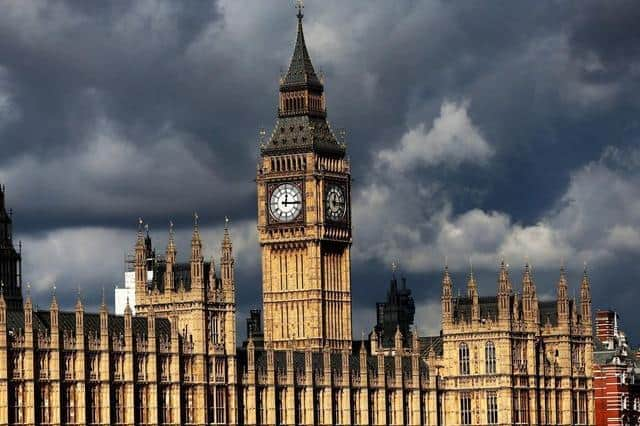Promoters who became wealthy on back of human misery must pay the price - Greg Wright
For too long, unethical tax advisers have become wealthy on the back of human misery. But there is a chance that things are about to change. MPs are pushing for a new law that would make it easier to prosecute enablers of “egregious tax avoidance”.
A cross-party group, led by Labour MP Dame Margaret Hodge, is calling for the removal of the requirement to prove people promoting tax avoidance schemes had been dishonest. The law would target tax advisers, lawyers and accountants who, Dame Margaret said, often got away “scot free” even if the schemes they promoted were found to be unlawful.
Advertisement
Hide AdAdvertisement
Hide AdDame Margaret, who chairs the all-party group on anti-corruption and responsible tax, said: “In order to bear down on egregious tax avoidance, we must tackle the role of enablers by holding them to account for their advice.”


She added: “In the most serious cases, these enablers should be subject to criminal prosecutions. However, prosecuting these bad actors under existing law is made harder by the need to prove they’re dishonest.”
Today, there appears to be little credible deterrent against the minority of wrongdoers who profit by trading in the very worst tax advice. The amendment planned by the anti-corruption group would remove the requirement to prove that a defendant had behaved dishonestly and replace it with a “double reasonableness test”, where prosecutors would have to show only that it was not reasonable to believe that a tax avoidance scheme was reasonable.
The all-party group has commissioned the criminal barrister Justin Rouse QC to address the Government’s concerns that the changes would end up criminalising people who had inadvertently promoted tax avoidance schemes that would not work.
Advertisement
Hide AdAdvertisement
Hide AdMr Rouse’s advice was that scenarios that might result in an unjust prosecution were “inherently unlikely” and a planned amendment would “simply … enable prosecutions of dishonest advisers that would otherwise be very difficult for evidential reasons”.
The potentially devastating impact of flawed advice was uncovered by Sir Amyas - now Lord - Morse in his review into the “highly controversial” loan charge.
Lord Morse received more than 700 impact statements from people affected by the loan charge, including a “considerable number” who had referenced suicidal thoughts after receiving unexpected and potentially life-changing tax bills after taking professional advice.
To quote Lord Morse’s report: “Many taxpayers in this category entered into loan schemes because a professional adviser presented them with the arrangement and suggested it was suitable for them to use.”
Advertisement
Hide AdAdvertisement
Hide AdThe mass-market nature of loan schemes has created a large pool of potential customers for unscrupulous advisers.
Lord Morse said: “The review also heard that people may have been induced into using schemes, or had schemes recommended by reliable third parties. Examples of such behaviour included individuals being made redundant and told that they needed to use a specific umbrella company and a specific loan scheme if they wanted to be re-engaged.”
So there’s clear evidence that workers - often on modest incomes - became involved with these schemes after trusting supposedly reliable advisers who should have known better.
The review found “numerous examples” of material from scheme promoters produced during the 2010s which continued to present such behaviour as legitimate tax planning, despite the clear risks.
Advertisement
Hide AdAdvertisement
Hide AdSome promoters also took massive fees while convincing others to use schemes that they would have known were very unlikely to work, the review concluded. The growth of the gig economy is likely to create a further pool of people to whom these types of schemes could be easily marketed.
Time is of the essence. The jailing of the worst offenders provides the best hope of protecting innocent people from advisers without a conscience.
